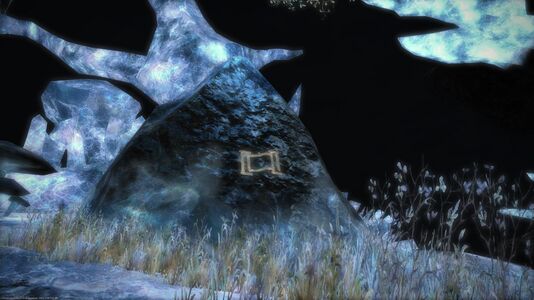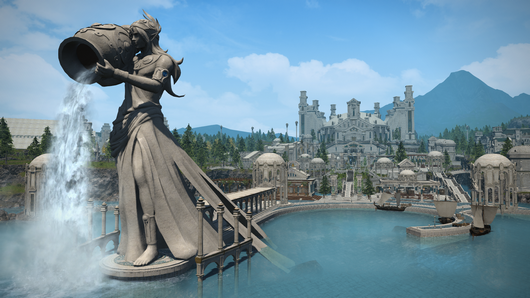Difference between revisions of "Thaliak"
Freedom4556 (talk | contribs) m |
|||
| (2 intermediate revisions by 2 users not shown) | |||
| Line 12: | Line 12: | ||
==True Origin== | ==True Origin== | ||
{{#spoiler:show=Spoiler (Click to Show)|hide=Click to Hide Spoiler|Thaliak | {{#spoiler:show=Spoiler (Click to Show)|hide=Click to Hide Spoiler|Thaliak was created from an [[Amaurotine]] who was one of [[Venat]]'s companions. He was the headmaster of [[Akadaemia Anyder]] and a renowned scholar.}} | ||
==Additional Information== | ==Additional Information== | ||
| Line 22: | Line 22: | ||
</references> | </references> | ||
[[Category:Lore/Mythology]] | [[Category:Lore/Mythology]] [[Category:NPCs]] | ||
Latest revision as of 10:21, 3 November 2023
Thaliak, ruler of rivers and wisdom and god of knowledge, is the guardian deity of Sharlayan. He commands the element of water and is associated with the third moon of the Eorzean calendar. Thaliak is the father of Llymlaen, and the teacher of Byregot. He is most often depicted as a reserved scholar holding an ashen staff. His symbol is the scroll.[1]
Thaliak added the essence of knowledge to the star Nymeia melted down, and poured it forth from his Ewer to create the "Heaven of Water", where scholars, inventors, teachers and entrepreneurs reside. From the bed of this river, droplets fall into "The Pit" where they stagnate into the "Hell of Water", drowning the deceivers, counterfeiters, mountebanks and false prophets.
The staff Tupsimati bears the symbol of Thaliak. By claiming enough victories in the Wolves' Den, adventurers can claim gear and weapons modeled after Thaliak.
The Mark of Thaliak can be found at Rathefrost in Mor Dhona.
An enormous statue of Thaliak guards the entrance to Scholar's Harbour in Old Sharlayan.
True Origin
Additional Information
- See also: The Twelve
- Thaliak was adopted as Sharlayan's patron deity by a session of the Ecclesia, a governance system predating the The Forum, sometime within the early centuries of the Sixth Astral Era.
References
- ↑ Encyclopædia Eorzea, p.16

